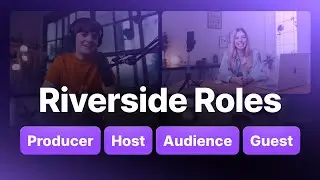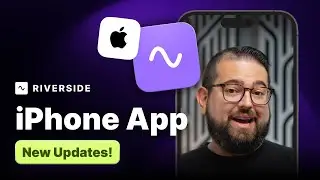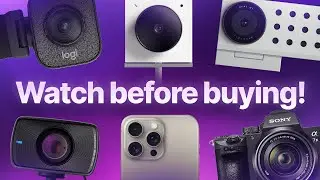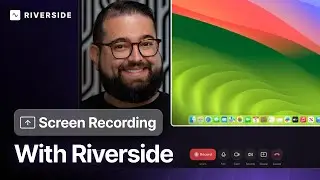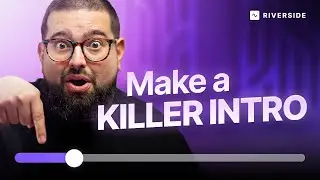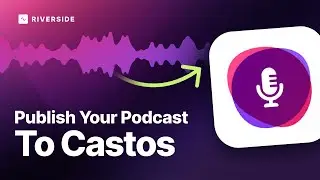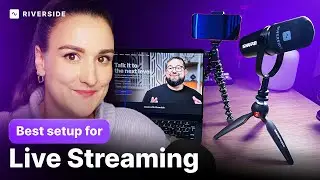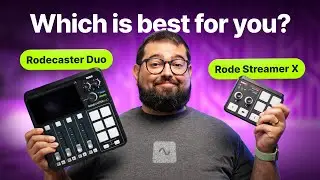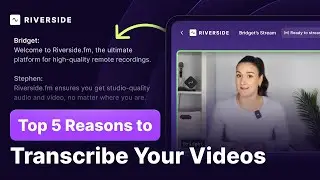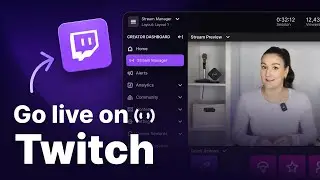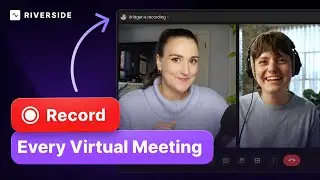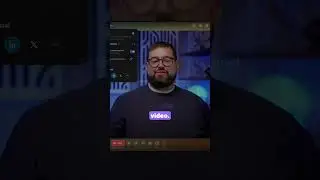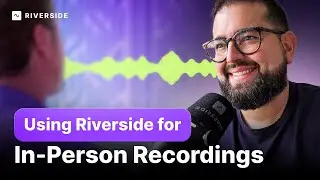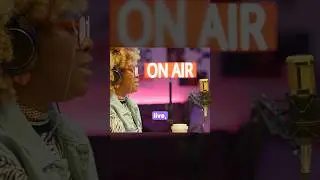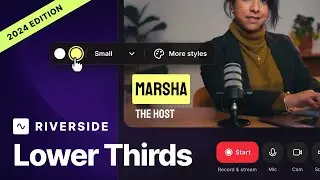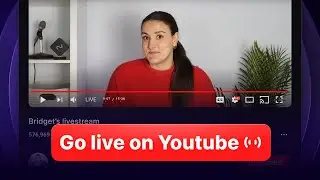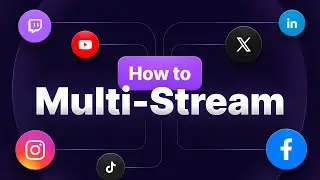What is the Best Microphone for Podcasting? 5 Things to Consider
What is the best microphone for podcasting? This is a frequently asked question and in this video, we present you 5 things to consider when choosing a mic.
Choosing the best microphone for podcasting depends on your needs. Buying a microphone for your podcast is an investment, and you don't want to potentially waste hundreds of dollars buying the wrong one. That's why in this video, we're going to help you make the right decision on a microphone.
--
Timestamps
00:00 - Intro
00:32 - What is the best microphone?
01:09 - More money = better mic?
02:11 - USB or XLR
03:19 - Condenser or Dynamic
04:24 - Which brand?
04:40 - James' favorite mic
05:22 - What should you buy?
---
Leave a comment below with the microphone you use - we'd love to see it.
----
Extensive Summary:
*There is no 'best microphone'*
When it comes to picking a microphone, it depends on your circumstances, your budget, and what you're looking for:
a. You could have a relatively noisy environment so you need one with good background noise rejection.
b. You might have a perfect recording studio so you want the most sensitive microphone.
c. You could also have to buy 4 microphones for your hosting team so can't break the bank.
*Budget*
1. Spending more money doesn't necessarily mean getting a better microphone.
2. The law of diminishing returns hits microphones at around $100-$200, so as you spend more the distinguishable quality in the sound will get smaller and smaller.
3. I'd suggest the best microphone for podcasting if you're not worried about budget is the Shure SM7B.
4. If you've got a small budget, you should look at options such as the Shure SM58 or Rode NT USB Mini which you can pick up for around $100.
*XLR or USB*
A USB microphone connects directly to your computer or laptop and you can get a very good sound from them, but you will lose a little bit of control that you might get with an XLR microphone.
An XLR microphone requires an interface like the Focusrite 2i2 or Zoom H6 to process and convert the analog signal from your microphone into a digital one into your computer.
The XLR microphones will give you a little more control over your settings and gain, which is desirable. You'll also find the most expensive microphones are XLR, because you can get the best quality this way.
A fantastic USB option is the Shure MV7, which was made specifically for podcasters, has an XLR option too for when you get an interface and only costs about $250.
The Shure SM7B is a superb XLR dynamic microphone, but you might want to look into the Rode NTA-1 for about $150 for an XLR condenser microphone.
*Condenser or Dynamic*
A dynamic microphone is directional and has background noise rejection and is usually more forgiving in most situations. This is probably most suited to most people's setups.
A condenser microphone isn't directional and is much more sensitive, but may give you a higher quality signal. This is the type of microphone you'd see in a recording studio because the treatment in these studios means the condenser microphones will work best.
I tend to opt for dynamic microphones because the treatment in the room I record isn't perfect and often there is some noise from outside my window.
he Rode Procaster is a great dynamic option for podcasters and will only cost you about $150. I've used this personally for my podcast for a long time. You could also take a look at the Heil PR40 for about $300.
Got unlimited budget and want to get one of the best mics there is? Take a look at the NEUMANN U87 Ai, which is 'the' voiceover mic you'll hear in studios around the world. You can pick one up for a eye watering $3,000.
*The best brands*
We recommend looking at Rode, Shure, Audio Technica, Samson and Heil for your microphone needs.
*My top 3 microphones*
1st place: Shure SM58.
2nd place: Rode Procaster.
3rd place: Shure SM7B.
In summary: there is no perfect mic. You could spend $3000 on a NEUMANN U87 Ai and have the best microphone in the world and an empty bank account. Or you could spend $100 on a Rode NT USB mini and have it sound perfect for your needs. The truth is, you've got to look at what's important for you and make an informed decision.
----
⭐⭐⭐ Visit our website: https://riverside.fm/?via=youtube ⭐⭐⭐
Keep up to date:
Subscribe to our YouTube: / @riversidefm
Follow us on Twitter - / riversidedotfm
Follow us on LinkedIn: / riverside-fm
Like our Facebook page: / riversidedotfm
Read our blog - https://www.riverside.fm/blog
Riverside.fm is a browser-based solution for remote audio & video recording. The quality is independent of internet connection, making it easy for podcasters to record remote interviews in studio quality. Locally recorded, separate WAV audio and (up to) 4k video tracks included.
---
#podcast #riverside #audiogear








